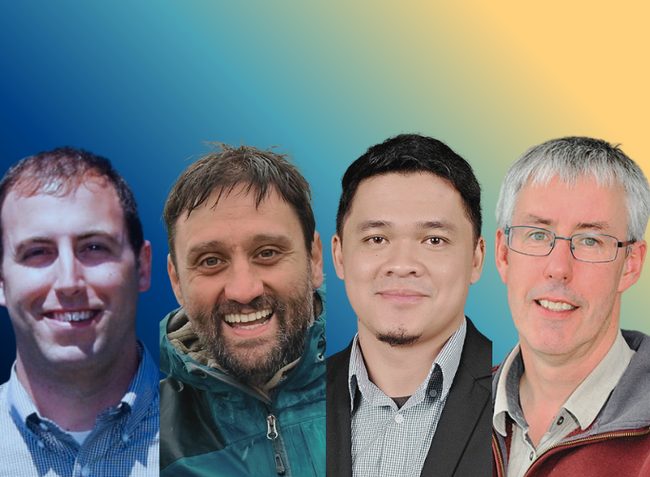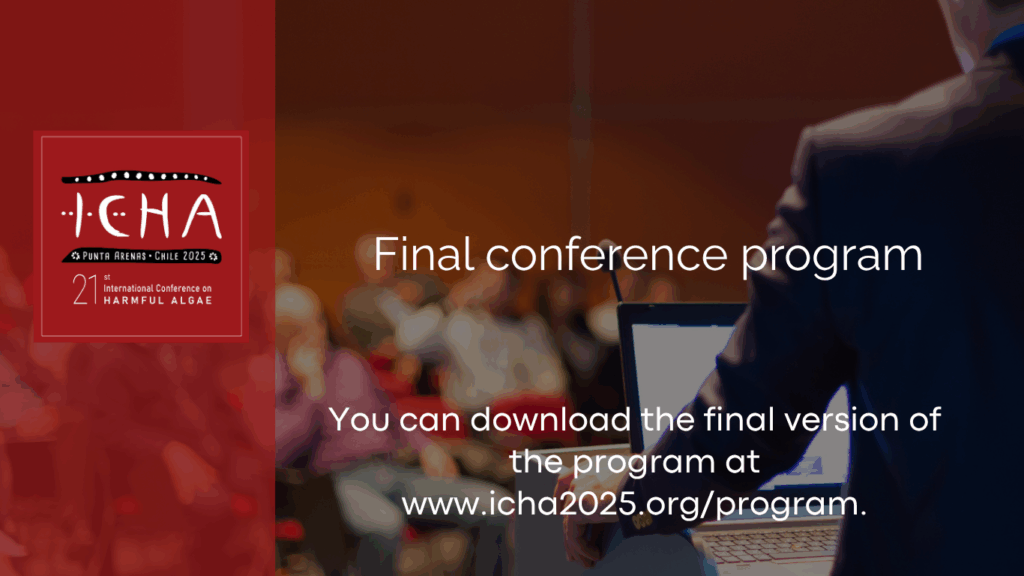Tuesday, October 21, 12:30h – 14:00h (lunch time)
Description:
In this session, panel members will discuss their experiences and challenges managing IFCB networks of multiple instruments. This “roundtable & lunch session” will be an opportunity to compare techniques for deployment practices, data handling and network management.
Program:
- Welcome by the panel participants.
- Introduction to IFCB networks being represented.
- Managing multiple instruments – Budgeting and planning.
- Deployment challenges – Deploying and troubleshooting.
- Data management – storage, standardization and post-processing.
Presenter Details:
- Michael Brosnahan / Assistant Scientist / Woods Hole Oceanographic Institute (WHOI).
- Thomas Farrugia / Program Manager / Alaska Ocean Observing System (AOOS)
- Deo Onda / Associate Professor / University of the Philippines Marine Science Institute (UP MSI)
- Keith Davidson / Associate Director for Education / Scottish Association for Marine Sciences (SAMS).
Biographies:
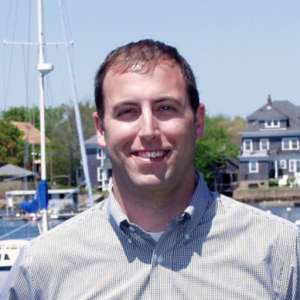 Dr. Michael Brosnahan works as an Assistant Scientist in the Biology Department at the Woods Hole Oceanographic Institute (WHOI), where he heads Brosnahan Lab. He is also the Director for the HAB Observing Network (HABON). His research focuses on harmful algal blooms (HABs) and their response to environmental change. His work integrates field monitoring, molecular techniques, and sensor technologies to study phytoplankton behavior and life cycle transitions in natural environments. Dr. Brosnahan developed the PhytO-ARM system, a network of robotic sensors designed to detect and monitor HABs in real time. In addition, he has contributed to projects funded by the National Oceanic and Atmospheric Administration (NOAA) Sea Grant Program.
Dr. Michael Brosnahan works as an Assistant Scientist in the Biology Department at the Woods Hole Oceanographic Institute (WHOI), where he heads Brosnahan Lab. He is also the Director for the HAB Observing Network (HABON). His research focuses on harmful algal blooms (HABs) and their response to environmental change. His work integrates field monitoring, molecular techniques, and sensor technologies to study phytoplankton behavior and life cycle transitions in natural environments. Dr. Brosnahan developed the PhytO-ARM system, a network of robotic sensors designed to detect and monitor HABs in real time. In addition, he has contributed to projects funded by the National Oceanic and Atmospheric Administration (NOAA) Sea Grant Program.
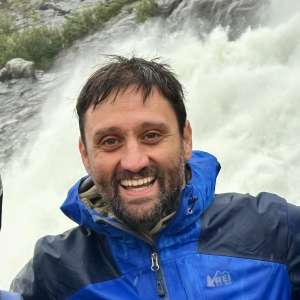 Thomas Farrugia is the Network Coordinator for the Alaska Harmful Algal Bloom Network (AHAB) at the Alaska Ocean Observing System (AOOS). His focus is on coordinating the awareness, monitoring, research and response to harmful algal blooms (HABs), a crucial issue impacting public health, food safety and security, and wildlife populations. His diverse career includes roles as a fisheries observer in the Bering Sea, a stock assessment scientist for the Falkland Islands, and a white shark researcher at the Monterey Bay Aquarium. In his current role, Dr. Farrugia coordinates statewide HAB monitoring and response efforts, collaborating with researchers, public health officials, and resource managers to mitigate the impacts of algal blooms on Alaska’s communities and ecosystems.
Thomas Farrugia is the Network Coordinator for the Alaska Harmful Algal Bloom Network (AHAB) at the Alaska Ocean Observing System (AOOS). His focus is on coordinating the awareness, monitoring, research and response to harmful algal blooms (HABs), a crucial issue impacting public health, food safety and security, and wildlife populations. His diverse career includes roles as a fisheries observer in the Bering Sea, a stock assessment scientist for the Falkland Islands, and a white shark researcher at the Monterey Bay Aquarium. In his current role, Dr. Farrugia coordinates statewide HAB monitoring and response efforts, collaborating with researchers, public health officials, and resource managers to mitigate the impacts of algal blooms on Alaska’s communities and ecosystems.
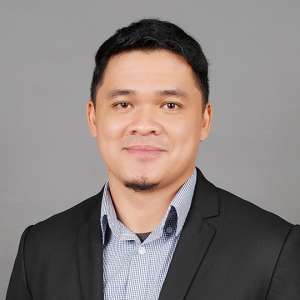 Deo Onda is an Associate Professor at the University of the Philippines Marine Science Institute (UP MSI) where he leads the Microbial Oceanography Laboratory. His research explores microbial diversity, host-symbiont interactions, and the impacts of environmental changes on marine ecosystems. Dr. Onda is renowned for becoming the first Filipino to descend into the Emden Deep, the third deepest known point on Earth, located in the Philippine Trench. Dr. Onda was honored with the Balik Scientist Achievement Award for his long-term research on marine microbial ecology, particularly in the West Philippine Sea, which has informed conservation efforts and sustainable marine resource management.
Deo Onda is an Associate Professor at the University of the Philippines Marine Science Institute (UP MSI) where he leads the Microbial Oceanography Laboratory. His research explores microbial diversity, host-symbiont interactions, and the impacts of environmental changes on marine ecosystems. Dr. Onda is renowned for becoming the first Filipino to descend into the Emden Deep, the third deepest known point on Earth, located in the Philippine Trench. Dr. Onda was honored with the Balik Scientist Achievement Award for his long-term research on marine microbial ecology, particularly in the West Philippine Sea, which has informed conservation efforts and sustainable marine resource management.
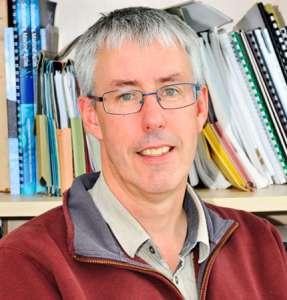 Keith Davidson is a Professor at the Scottish Association for Marine Science (SAMS) and serves as the Associate Director for Science and Education, where he leads research and educational initiatives related to marine ecosystems. His research has concentrated on harmful algal blooms (HABs) and their implication for marine aquaculture and human health. Dr. Davidson’s work examines how physical, chemical, and biological factors influence HAB events and aims to develop predictive models and risk assessment tools to provide early warnings for aquaculture industries, regulators, and the public. He has contributed to various professional bodies, including the Royal Society of Biology and the International Society for the Study of Harmful Algae, and has provided expert advice to government agencies on marine biotoxin risk assessments.
Keith Davidson is a Professor at the Scottish Association for Marine Science (SAMS) and serves as the Associate Director for Science and Education, where he leads research and educational initiatives related to marine ecosystems. His research has concentrated on harmful algal blooms (HABs) and their implication for marine aquaculture and human health. Dr. Davidson’s work examines how physical, chemical, and biological factors influence HAB events and aims to develop predictive models and risk assessment tools to provide early warnings for aquaculture industries, regulators, and the public. He has contributed to various professional bodies, including the Royal Society of Biology and the International Society for the Study of Harmful Algae, and has provided expert advice to government agencies on marine biotoxin risk assessments.
Registration will be done directly by email to mclane@mclanelabs.com
Notice: Workshops are held with a maximum of 35 people. Workshop will close when the maximum capacity is reached.
Contact: Please contact us if you have any further questions, mclane@mclanelabs.com.



